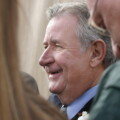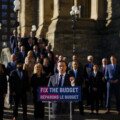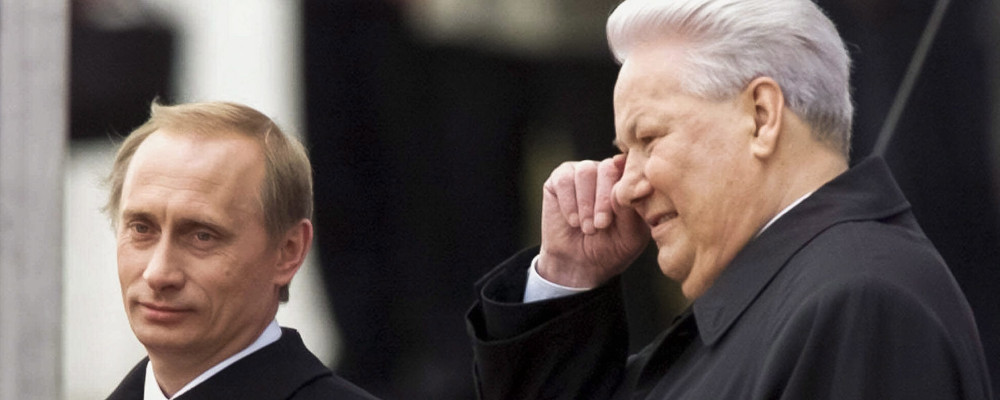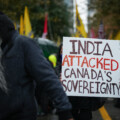Why are Conservatives increasingly interested in cryptocurrencies?
It might seem like an odd fit at first blush. Conservatism, after all, is something of a backward-looking persuasion. It starts from a premise that traditional ideas and institutions should, as a general rule, be protected and sustained. They’ve come through a process of trial and error over the course of history and therefore deserve our deference and respect.
This call for epistemological humility can sometimes manifest itself in an aversion to novelty and even progress. Michael Oakeshott famously described it as:
“… to prefer the familiar to the unknown, to prefer the tried to the untried, fact to mystery, the actual to the possible, the limited to the unbounded, the near to the distant, the sufficient to the superabundant, the convenient to the perfect, present laughter to utopian bliss.”
The point here is that the conservative instinct tells us that most new ideas are false or wrong precisely because they haven’t been subjected to the rigours of practical wisdom. Conservatism, in this sense, is the political expression of the famous line from Will and Ariel Durant: “Out of every hundred new ideas ninety-nine or more will probably be inferior to the traditional response which they propose to replace.”
That might seem like an odd philosophical basis from which to embrace something as far-out as digital money. Yet there are limits to mere abstractions about conservative ideas and the conservative persuasion. Samuel Huntington tells us that conservatism must be understood in a specific situational context. It’s a contingent perspective that reflects particularistic circumstances. A Saudi Arabian conservative is different from a European conservative who’s different from a North American conservative. What they seek to conserve necessarily reflects their unique culture and intellectual inheritances.
North American conservatism has long distinguished itself by its unique combination of a deference to tradition and a commitment to change. In his famous essay, “Why I am not a conservative,” Friedrich Hayek attributed this mix of posterity and progress to the fact that what North American conservatives are essentially seeking to conserve is a classical liberal tradition. That is to say, the North American conservative is, at some fundamental level, a liberal. His or her conservatism is dedicated to the preservation of the continent’s liberal ideas, institutions, and values.
It’s worth emphasizing this point: North American conservatism is somewhat oxymoronically committed to preserving a cultural and political liberalism which itself is fertile soil for growth, dynamism, and innovation. It’s a conservative tradition committed to a set of ideas, institutions, and values that are inherently pro-progress.
David Brooks spoke to this unique amalgam of ideas and intuitions in a 2018 podcast episode with Tyler Cowen. When asked about his own conservative worldview, he answered the following:
Well, I’m an American conservative. My two heroes are Edmund Burke — and Edmund Burke’s core conservative ethos is epistemological modesty, the belief that the world is really complicated, and therefore the change should be constant but incremental… My other hero is Alexander Hamilton… His conservatism was very different. It’s about dynamism, energy, transformational change. And so a European self-conservatism doesn’t work here. You have to have that dynamic, recreated, self-transformational element.
This applies to Canada too. As Ben Woodfinden and I outline in a forthcoming essay on Sir John A. Macdonald’s own conservatism, the country’s first prime minister personified this unique mix of backward- and forward-looking ideas. He was at once a dispositional conservative as represented in his personal preferences and tastes and something of a futurist with an ambitious vision of the frontier that was manifested in his nation-building agenda. As we write:
“For his part, Macdonald saw entrepreneurial freedom, limited but energetic federal power, and national greatness as inextricably linked. These instincts for national development were actually quite Hamiltonian. Like the father of the American commercial revolution, Macdonald came to represent a business liberalism which was suffused with a Toryism concerned with a ‘virtuous and ordered liberty.’”
I share this abridged story of the North American conservative tradition because it’s important to understand the compatibility of conservative ideas and technological progress in general and conservatism and cryptocurrencies in particular. The conservative persuasion in North America should be generally viewed as sympatico with frontier-like ideas, inventions, and technologies.
These conceptual points bring us back to the more practical question at hand: why are conservatives increasingly pro-crypto?
The first point is to establish that they are indeed showing growing interest in digital currencies. There are various examples, including, for instance, MP Michelle Rempel-Garner’s recently-tabled legislation that would have the government consult on a framework to encourage the growth of crypto assets in Canada.
Some have dismissed these developments as merely related to the recent trucker protests in Ottawa. But this critique fails to reckon with the broader movement of conservative intellectuals and politicians that has come to support bitcoin and other forms of crypto-currencies in recent years.
The highest-profile proponents aren’t themselves politicians. The two biggest are probably Elon Musk and Peter Thiel who are investors and entrepreneurs with significant influence on society and culture in general and the world of libertarianism in particular.
They’ve both come to be associated with the growing cultural and political movement around crypto-currencies through a combination of their personal investments, public commentaries, and large online followings. The former has frequently talked about how he owns crypto-currencies, including Dogecoin, which he has been instrumental in popularizing. The latter has described bitcoin as “the one asset that I most strongly believe in.”
The appeal of crypto-currencies to Musk and Thiel isn’t merely about the financial upside. There’s also an ideological dimension. Digital money’s decentralized nature conjures up possibilities of new, more libertarian economic and political arrangements. Thiel has even argued that if we want to think about contemporary technologies in ideological terms, artificial intelligence can be thought of as communist and crypto-currencies are libertarian.
It’s no surprise that in the face of sustained pandemic restrictions, libertarian ideas seem to be resonating more and more these days. In this context, Musk and Thiel have emerged as major figures among a cohort of millennial or Generation Z followers who are drawn to their contrarian rebuke of the stuffy conformity of modern life. Ross Douthat has thus described the rise of “folk libertarianism”—or what others have called “Barstool conservatism”—as one of the key socio-political developments of the pandemic age.
This movement is less steeped in the tomes of libertarian thought and instead more reflective of contemporary cultural and political trends, including the rise of cancel culture, identity politics, and perceptions of government bossiness. Its followers are more Dave Portnoy than Ludwig von Mises.
As a cultural and political movement, it’s highly active online, a bit coarse and politically incorrect, and mostly engaged in politics from the periphery using GIFs and memes rather than direct action. It reflects a series of intuitions about individual responsibility, personal expression, a commitment to technology and progress, and an aversion to so-called “wokeism.” Recently, The Hub contributor Ben Woodfinden summed up this worldview and its followers as “crypto bros.” He’s not wrong.
The key point here though is that there are cultural and intellectual factors behind North American conservatives’s growing interest in new and novel monetary innovations. It’s broadly consistent with continental conservatism’s interest in frontier ideas and technologies as well as the growing appetite for non-mainstream, decentralized models of economic and political organization in the face of perceived top-down conformity. But it also possibly holds out the potential to bring new and different voters—particularly members of Canada’s sizeable non-voter constituency—into the Conservative fold. Crypto has therefore become an ideological and political rallying cry for North American conservatives.
It’s not to say that there are serious issues with crypto-currencies. The recent volatility raises legitimate questions about whether this is a sustainable market development or merely a hyper-online fad. One gets the sense that the true story is somewhere in the middle.
But as Matt Spoke recently argued in an essay for The Hub, there may be a case for a country like Canada to make a “huge bet” that the future of crypto is more sustainable than it is faddish. There’s reason to believe that the presumptive, next Conservative leader, Pierre Poilievre, broadly agrees with this perspective.
To the extent that he does, it shouldn’t be viewed as inherently incompatible with the conservative tradition. North American conservatism has since its origins reflected an intellectual and political persuasion with both a backward- and forward-looking impulse. A careful yet curious view on crypto-currencies is well-rooted in this long-standing tradition.
Recommended for You

David Collins: The Trudeau government’s tax on American tech giants is a lose-lose for consumers and the Canadian economy

Brad Tennant: It’s time for Alberta’s conservatives to move on from Ralph Klein’s one bad legacy

Patrick Luciani: The troubling origins of ‘Settler Colonialism’

What can we expect from Pierre Poilievre’s Conservatives when Parliament resumes?










